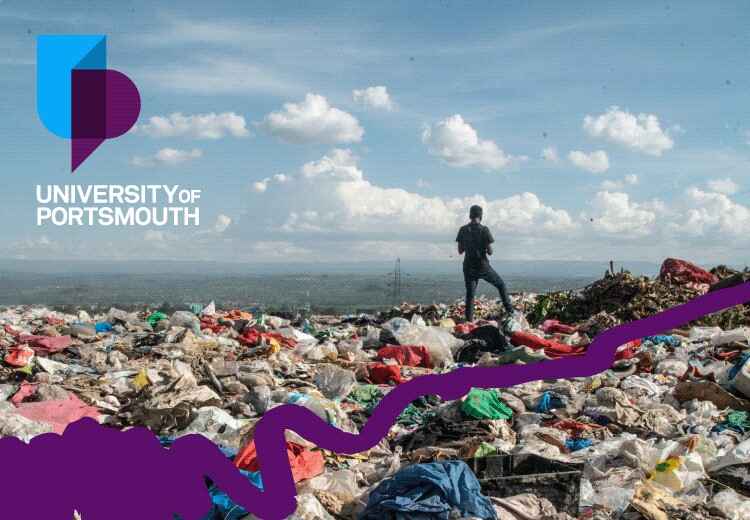Tackling pollution through a plastics revolution

Only radical action can stop plastic pollution wreaking havoc on health and the environment. At the University of Portsmouth’s Revolution Plastics Institute, researchers are helping to build a world that’s more sustainable.
The Institute aims to urgently transform understanding of the global plastics crisis through research and innovation, to support the transition to a sustainable plastics future.
The Institute takes an inclusive, solutions-focused strategy, inviting contributions from diverse disciplines. A range of projects and partnerships enable us to tackle the complex challenge of plastic use and pollution in holistic ways.
Influencing policy and action
Without policy intervention, the amount of plastic waste entering the oceans will triple by 2040. We established the Global Plastics Policy Centre to fill the critical gap between awareness of this enormous challenge and effective action.
Led by the Director of the Revolution Plastics Institute, Professor Steve Fletcher, the Centre analyses plastics policies from around the globe. By revealing what works, where and why, we’re helping to enable governments and businesses to make smart choices and stem the flow of pollution.
The art of making change
The Revolution Plastics Institute is deploying arts-based methods at a series of side events for the UN Global Treaty to End Plastic Pollution negotiations. For the third round of meetings (INC-3), Dr Cressida Bowyer and Dr Erika Hughes collaborated with Kenyan waste pickers to co-create six short pieces of interactive ‘Legislative Theatre’.
Revolution Plastics used Legislative Theatre to amplify the voices of waste pickers, bringing their lived experience to the policy- and decision-makers who have the power to realise systemic change. Waste pickers took their challenges to the heart of negotiations. They offered a dramatic insight into the difficulties they face. And they advocated for recognition, integration and inclusion in the global treaty process and associated outcomes.
Feedback from national delegations, industry representatives, scientists and international waste picker organisations who attended performances during INC-3 shows the effectiveness of this approach. The performance engendered a deeper understanding and consideration of waste pickers, and of their ambitions for inclusive and just transitions within the global plastics treaty process.
Revolutionising industrial capability
Thanks to our Centre for Enzyme Innovation, a new solution for recycling common plastics is on the horizon. Scientists from a wide range of disciplines are collaborating in custom laboratories to develop enzyme-based low energy, low carbon biorecycling solutions.
The team discover new enzymes from the environment that break down plastics. They then engineer these enzymes to act much faster, so that they can be deployed in industry-ready formulations for a revolution in biorecycling and upcycling.
Through innovation and collaboration, the Revolution Plastics Institute will shape a cleaner, safer future for the whole planet.
Discover more about the Revolution Plastics Institute:
Explore postgrad study at Portsmouth and book a one-to-one chat with a research specialist: